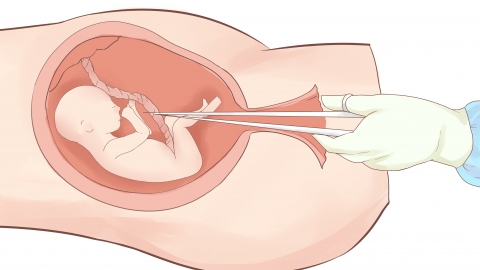How to best recuperate after induced labor
Generally speaking, there is no single best way to take care of one's body after induced labor. Post-induction recovery should focus on sufficient rest and sleep, balanced dietary adjustments, personal hygiene, monitoring physical condition, and moderate activity and exercise. A detailed breakdown is as follows:

1. Sufficient Rest and Sleep
After induced labor, a woman's body is relatively weak and requires adequate sleep and rest to allow time for recovery. It is recommended to rest in bed appropriately during the first few days post-procedure, avoiding excessive fatigue, prolonged standing, or walking.
2. Balanced Dietary Adjustments
The diet after induced labor should consist of light, easily digestible, and nutrient-rich foods, such as fresh vegetables, fruits, meats, eggs, and dairy products. These foods are rich in proteins, vitamins, and minerals, which help replenish essential nutrients for the body.
3. Maintain Personal Hygiene
Maintaining personal hygiene is a crucial part of postpartum care following induced labor. It is recommended to wash the external genital area daily with warm water, frequently change sanitary pads and underwear, and avoid tub bathing to prevent infection.
4. Monitor Physical Condition
After induced labor, women should closely monitor their physical condition, including vaginal bleeding and changes in body temperature. If any abnormalities occur, such as prolonged bleeding, excessive blood loss, foul odor, or abdominal pain, prompt medical attention should be sought.
5. Moderate Activity and Exercise
When physical condition permits, women can engage in light physical activities after induced labor, such as walking or yoga. These activities can help improve blood circulation and accelerate recovery. However, strenuous exercise should be avoided to prevent adverse effects on the body.
Women recovering from induced labor are generally weak and should avoid prolonged heavy physical labor or intense exercise. Additionally, maintaining overall personal hygiene, such as frequent hand washing and bathing, is important.





